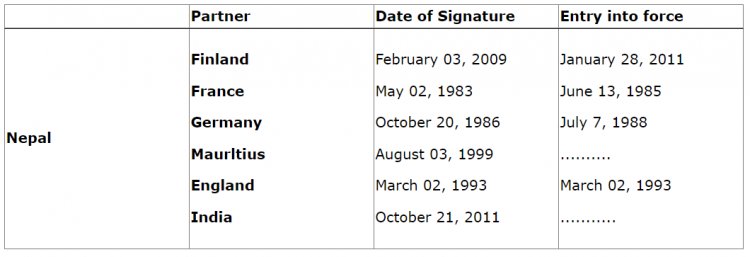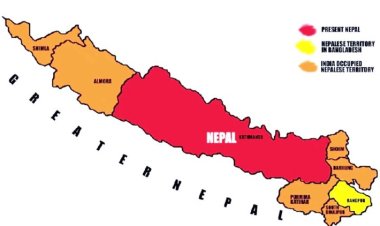Nepal's Bilateral Relationship (BIPPA Agreement)
Discover the benefits of Bilateral Investment Promotion and Protection Agreements (BIPPA) in attracting foreign investors to Nepal, and explore the key features and significance of these agreements.

BIPPA stands for Bilateral Investment Promotion and Protection Agreement. It is a legal contract secured between two economies (host country and home states); which establishes a safe investment for investors. The primary objective of this agreement is to protect foreign investors from non-commercial losses, where investors have the same rights as local investors in the host country. Non-commercial losses here refer to riot, terrorist attack, war, armed conflict, insurrection or state of emergency, etc. However, losses from workers strike are not included; the state only pays compensation for investors arising from non-commercial losses as stated above. BIPPA is the most relevant way to attract foreign investors to host countries.
Nepal is gradually moving towards economic development. The settlement of political disputes in the country leads to a peaceful business environment. BIPPA is the focal point for Nepal's foreign (inward) investment. Government of Nepal should sign another BIPPA with more countries of the world.
The BIPPA agreement is beneficial for both countries. The host country will receive investments that will create several job opportunities; and other benefits on the amount of profit transferred to their economy. As noted in a "Republica" news article, there are more than 2,600 BIPPA agreements between states worldwide and the number is increasing. The image below describes the brief knowledge about BIPPA.

Figure : BIPPA definition and Advantages
Nepal has so far practiced such agreement with six countries. On 21 October 2011, Nepal signed the BIPPA agreement with INDIA (Republic). The following table defines Nepal's BIPPA as listed in UNCTAD records.

Table: BIPPA treaties by Nepal
Frequently asked questions (FAQ)
-
What does BIPPA stand for?
BIPPA stands for Bilateral Investment Promotion and Protection Agreement. -
When was the BIPPA agreement signed between Nepal and India?
Nepal signed the BIPPA agreement with India on 21 October 2011. -
How does a BIPPA agreement protect foreign investors?
A BIPPA agreement protects foreign investors by providing them with the same rights as local investors in the host country. It aims to safeguard their investments from non-commercial losses, such as riots, terrorist attacks, war, armed conflict, insurrection, or states of emergency. -
What are the primary objectives of a BIPPA agreement?
The primary objectives of a BIPPA agreement are to promote and protect foreign investments, establish a secure investment environment, and provide legal safeguards to foreign investors in the host country. -
Are workers' strikes covered under a BIPPA agreement?
No, losses arising from workers' strikes are typically not covered under a BIPPA agreement. The state usually pays compensation to investors only for losses resulting from non-commercial events, as mentioned earlier. -
How many BIPPA agreements has Nepal signed so far?
Nepal has signed BIPPA agreements with six countries. However, the specific countries and dates can be found in the UNCTAD records or through additional research. -
What are the benefits of signing a BIPPA agreement for both countries?
Signing a BIPPA agreement benefits both countries. The host country receives increased foreign investments, which stimulate economic growth, create job opportunities, and contribute to the overall development of the economy. Foreign investors, on the other hand, gain legal protection for their investments, ensuring a safe and stable environment to conduct business operations.
What's Your Reaction?







































































































